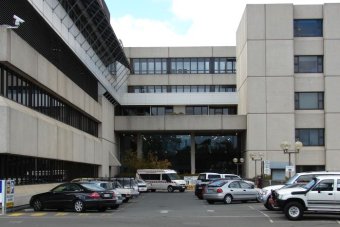The Australian Nursing and Midwifery Federation claims a Launceston General Hospital patient was forced to wait more than a week in the emergency room for a bed on a ward.
The Federation’s branch secretary, Neroli Ellis, said it was evidence that pressure on the hospital had reached ‘crisis’ point, and that more beds were needed to cope with increasing pressure in the emergency department.
One poor person waited eight days in the emergency department last week for a bed.
Neroli Ellis, Australian Nursing and Midwifery Federation
“It’s just not acceptable to have patients waiting, one example, one poor person waited eight days in the emergency department last week for a bed,” she said.
“It’s not acceptable to have people waiting at least two days on trolleys to get to a ward where they really meed to be admitted immediately.”
Ms Ellis said it had been a problem for years, and called on the State Government to provide more funding.
“What we’re seeing now is a real crisis situation that we’re just not able to cope with the huge demand, particularly without having enough beds in the hospital to admit patients to,” she said.
“The staff are doing everything they possibly can, but it’s really getting to the stage now that they’re wanting to stand up on behalf of their patients.”
The union said on average about 20 people at a time had had to wait for a bed during the week, and nurses had struggled to cope with the demand.
“There’s four beds that could be opened immediately and there’s another eight beds that could be actually opened on a more permanent basis, so there are beds there that are not open due to lack of funding,” Ms Ellis said.
“We’re doing everything we can to ensure those beds are considered now and opened.”
Sonia Purse from the Tasmanian Health Service northern region has asked the public for patience and understanding as they manage the increased demand for admissions.
“We are continuing to treat patients through the ED and are actively working to manage people needing admission to the hospital,” Ms Purse said.
“During this period of high demand we work with private hospitals and rural sites to provide additional beds where appropriate.
“We are acting quickly and appropriately to ensure that the needs of these patients are being met.
“Clinicians are working hard to assess patients who are suitable for discharge to free-up beds across the system.”
The union will meet with senior hospital management next week.

